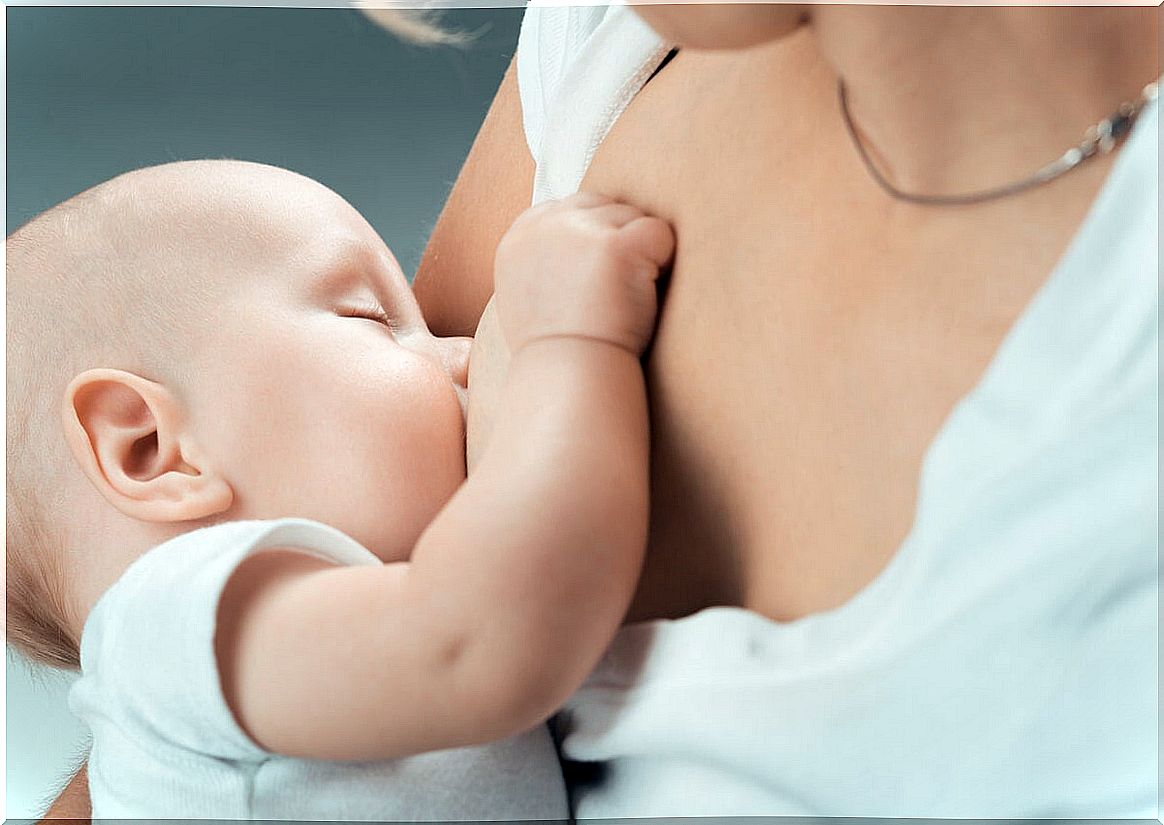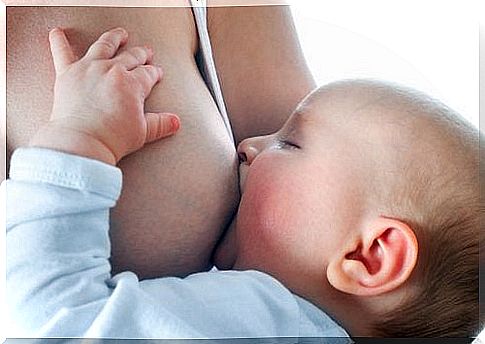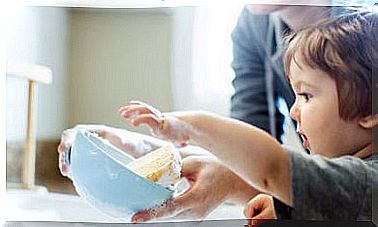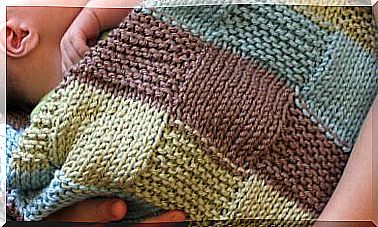Search Reflex In Newborn Babies

The search reflex in newborns is one of the instincts that should appear automatically in any healthy baby. It belongs to a group of archaic reflexes that are present not only in human babies, but in all mammals.
Its absence may be a sign of an abnormality that needs attention. Therefore, we are going to tell you in depth what the search reflex is and why it is important that it is present in newborns.
How is the searching reflex denoted in newborns?
The searching reflex occurs instinctively in all newborn babies and its presence is denoted approximately from their first day of life to four months.
This reflex is quite simple to stimulate, it is enough to bring our finger close and gently touch the cheek of a baby who is not sound asleep and we will notice how, automatically, the baby turns his head to where the pressure is.
As you have surely inferred, the searching reflex is a form of instinct that prompts the baby to search for the source of pressure, which is most commonly linked to the mother’s breast. Therefore, the seeking reflex is the unconscious movement of babies in search of the mother’s nipple and, therefore, is necessary for breastfeeding.
The importance of this reflex lies in the fact that it is the first link in a chain of reflexes that allow a baby to feed without problems from its mother’s breast. That is, when breastfeeding begins, the searching reflex brings the baby’s mouth to the mother’s nipple.
Then, the sucking reflex and the swallowing reflex play their part to form the triad of innate behaviors that promote the baby to feed on its mother’s breast, which will be its source of nutrition in the first part of its life.

An instinct that fades
The searching reflex is only a temporary instinct to support the baby’s cooperation in the task of breastfeeding. This reflex normally disappears around four months of age.
It is relevant to note that the loss of the search reflex does not mean that the child has reached sufficient maturity to do without breast milk.
The disappearance of this instinct only reflects that the baby now has enough consciousness to look for its mother’s breast when it is close and has an appetite. Thus, in this scenario, the baby may no longer respond to stimulation from its mother’s breast if it has no desire to eat.
The importance of the search reflex

The lack of the search reflex in newborns is not a problem that can be solved by the mother by directing the baby’s head towards her breast on her own. In this sense, the importance of the presence of this instinct goes beyond ensuring a correct diet.
If the newborn baby and in a relative waking state does not respond to a stimulus on his cheek looking for the source of pressure, this may be an indication of a motor condition that limits the movement of the neck muscles to turn in search of said stimulus.
If this is the case, its early detection can greatly increase the positive evolution of babies with conditions of this type.
The search reflex as a form of interaction with the mother
In many cases, the search reflex will not be followed by feeding by the child. This reflex is also a form of contact with the mother, which can make the child feel safe and less anxious.
Because of this, it is not uncommon for many babies to sleep better with their mouth on the mother’s breast, even though the searching reflex does not mean that a feeding session is about to begin.










